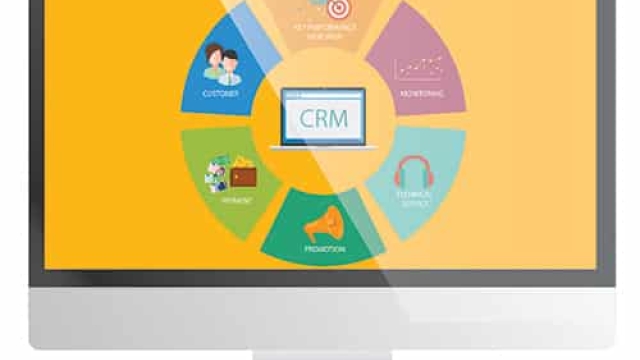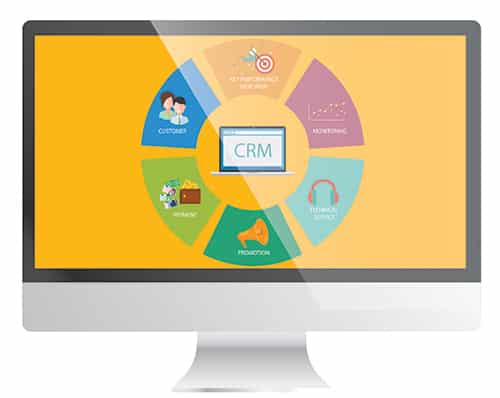In today’s fast-paced business landscape, where customer satisfaction and effective sales strategies are paramount, having an efficient Customer Relationship Management (CRM) system in place can be a game-changer for any organization. A solid CRM system streamlines sales processes, enhances customer interactions, and ultimately boosts sales revenue. With the ability to track and manage customer data in a centralized platform, businesses gain invaluable insights that can drive targeted marketing campaigns, personalized sales approaches, and service excellence. Whether you’re a small startup looking to establish a strong customer base or a well-established company aiming to strengthen client relationships, understanding how to optimize a CRM system is crucial in achieving long-term sales success. In this comprehensive guide, we will delve into the intricate details of CRM systems and unravel the strategies to maximize your sales potential. So, buckle up and get ready to unlock the power of CRM!
Section 1: Understanding CRM System
A CRM system, which stands for Customer Relationship Management system, is a software tool designed to help businesses manage and organize their interactions with customers. With the rapid advancement of technology, businesses are increasingly adopting CRM systems to streamline their sales processes and boost their overall sales performance.
One of the key features of a CRM system is its ability to store and organize customer data. By capturing and organizing valuable customer information such as contact details, purchase history, and preferences, businesses can gain valuable insights into their customers’ behavior and needs. This enables them to tailor their sales and marketing efforts to better meet the specific needs and preferences of their customers, ultimately improving customer satisfaction and loyalty.
Another important aspect of a CRM system is its ability to automate and streamline sales processes. Through features such as lead tracking, opportunity management, and sales forecasting, a CRM system helps businesses effectively manage their sales pipeline. By providing a comprehensive overview of all sales activities, businesses can identify bottlenecks, optimize their sales strategies, and ensure that no opportunity falls through the cracks.
Furthermore, a CRM system also enables seamless collaboration and communication among team members. By centralizing customer data and making it easily accessible to team members, a CRM system eliminates silos and fosters a collaborative sales environment. This allows for better coordination and enables teams to work together towards a common goal of increasing sales and maximizing customer satisfaction.
Understanding the key functionalities and benefits of a CRM system is crucial for businesses looking to boost their sales performance. By leveraging the power of a CRM system, businesses can effectively manage customer relationships, streamline sales processes, and ultimately drive more sales revenue.
Section 2: Benefits of Implementing a CRM System
Increased Efficiency: A CRM system streamlines and automates various sales processes, allowing businesses to operate more efficiently. By centralizing customer data, sales teams can access important information quickly and easily, enabling them to make informed decisions and respond promptly to customer needs. This leads to faster response times and improved overall productivity.

Enhanced Customer Insights: Implementing a CRM system provides valuable insights into customer behavior and preferences. By tracking customer interactions, purchase history, and demographics, businesses gain a deeper understanding of their customers’ needs and interests. This enables targeted marketing campaigns, personalized sales approaches, and better customer service, ultimately leading to increased customer satisfaction and loyalty.
Improved Sales Performance: A CRM system helps sales teams track and manage sales leads effectively, ensuring that no valuable opportunities are missed. By maintaining a clear overview of the sales pipeline, businesses can identify potential bottlenecks, optimize sales strategies, and forecast more accurately. Sales representatives can prioritize leads, allocate resources efficiently, and focus on high-potential prospects, resulting in improved sales performance and revenue growth.
These are just a few of the many benefits that can be achieved by implementing a CRM system. It empowers businesses to build stronger customer relationships, streamline operations, and drive sales growth. Embracing a CRM system is a strategic decision that can provide a competitive advantage in today’s dynamic and customer-centric marketplace.
Section 3: Strategies to Boost Sales with CRM
In Section 3 of our guide, we will discuss effective strategies that can help businesses boost their sales using a CRM system.
Targeted Lead Management:
One key strategy for driving sales is the effective management of leads. With a CRM system, businesses can easily categorize and track leads based on their stage in the sales process. By segmenting leads into different categories, sales teams can prioritize their efforts and focus on the most promising prospects. This targeted approach ensures that valuable time and resources are directed towards leads with the highest potential, resulting in improved conversion rates and increased sales.Personalized Customer Engagement:
A CRM system enables businesses to gather valuable information about their customers, including their preferences, purchase history, and interactions with the company. Armed with this knowledge, sales teams can personalize their approach to engage customers on a deeper level. By tailoring their communication and offerings to meet specific customer needs, businesses can build stronger relationships, enhance customer loyalty, and ultimately drive more sales.Sales Performance Analysis:
Another powerful strategy that a CRM system offers is the ability to analyze sales performance. By leveraging the data captured in the CRM, businesses can gain valuable insights into their sales process and identify areas for improvement. Sales managers can track key metrics such as conversion rates, sales cycles, and individual sales team performance. This data-driven approach allows businesses to make informed decisions, optimize their sales strategies, and drive overall sales growth.
Crm Do Małej Firmy
Overall, a CRM system provides businesses with a range of strategies to boost sales effectively. From targeted lead management to personalized customer engagement and sales performance analysis, leveraging the power of a CRM system can significantly enhance sales outcomes and drive business success.


